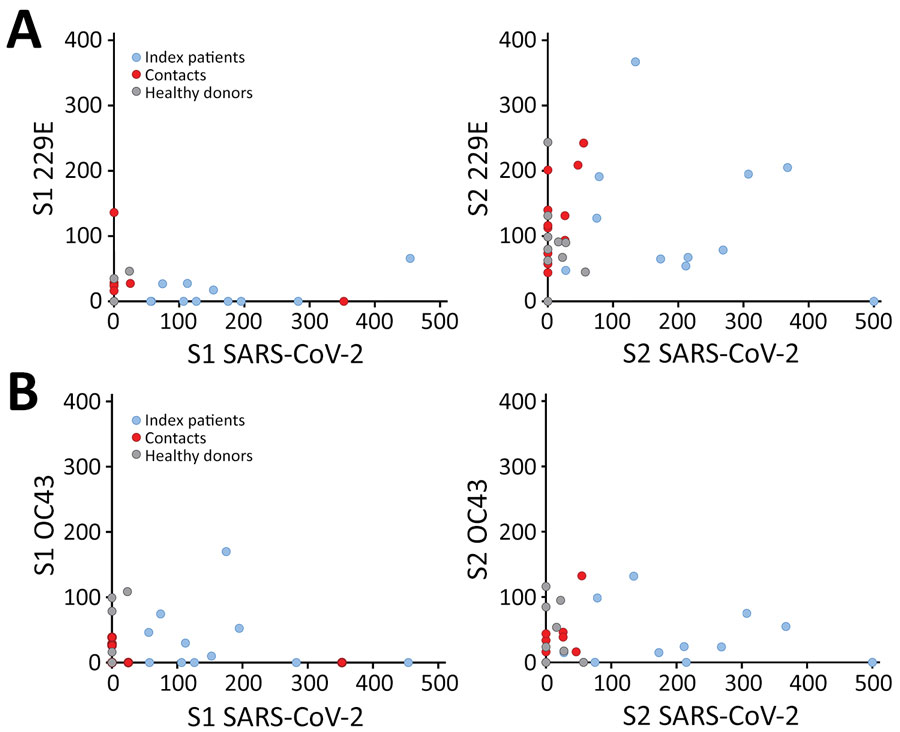Volume 27, Number 1—January 2021
Research
Intrafamilial Exposure to SARS-CoV-2 Associated with Cellular Immune Response without Seroconversion, France
Figure 4

Figure 4. Correlation of the T-cell responses against spike glycoprotein antigens of SARS-CoV-2 and HCoVs 229E and OC43 in study of intrafamilial exposure to SARS-CoV-2, France. Means of spot counts of interferon gamma–producing T cells per 1 million CD3+ cells in response to peptide pools spanning the N terminal (S1) and the C-terminal (S2) regions of spike glycoproteins of SARS-CoV-2 compared with HCoV-229E (A) and HCoV-OC43 (B) in 11 confirmed coronavirus disease cases (index patients), their seronegative partners (contacts), and 10 healthy blood donor controls. HCoV, human coronavirus; SARS-CoV-2, severe acute respiratory syndrome coronavirus 2.
Page created: September 29, 2020
Page updated: December 21, 2020
Page reviewed: December 21, 2020
The conclusions, findings, and opinions expressed by authors contributing to this journal do not necessarily reflect the official position of the U.S. Department of Health and Human Services, the Public Health Service, the Centers for Disease Control and Prevention, or the authors' affiliated institutions. Use of trade names is for identification only and does not imply endorsement by any of the groups named above.